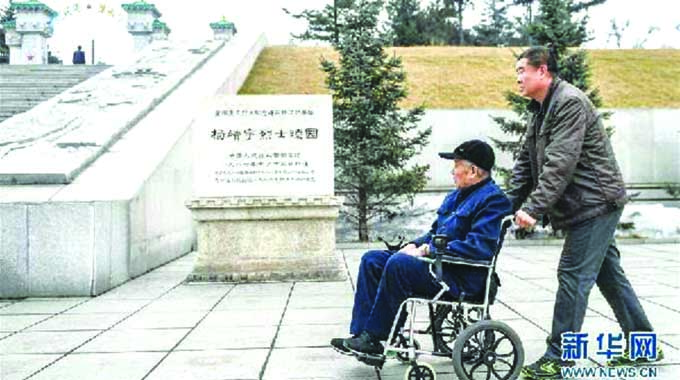Remembering our heroes

Last month, Zimbabwe was plunged into mourning by the passing of Cde SK Moyo. From what I gather from the condolences messages, Cde Moyo was a celebrated patriot, freedom fighter and distinguished political leader. As a foreigner, I often admire how Zimbabwe remembers her heroes of the liberation struggle. It reminds me of the revolutionary bonds between China and Zimbabwe. I find it both intriguing and reassuring that the Chinese and Zimbabweans, from completely different cultural backgrounds, once were fighting for the very same conviction and against the same enemy. I guess it really is true when they say some values are universal to human beings.
Today’s story is about how the memory of resisting foreign invasion is honoured in China by two unremarkable citizens.
Commander Yang Jingyu, a household name in China, was one of the most prominent leaders of the Chinese people’s fight against foreign invasion in the north-eastern part of the country during the 1930s.
Back then, China was so poor that her fighters were ill equipped and provided for in the war against its powerful enemy. But where he lacked in terms of armed forces and weapons, Commander Yang made up with unparalleled courage and patriotism. He was dubbed by the invaders as “the most mortal malady”. Once, the invaders dispatched a large force of 75 000 to hunt down Yang’s troop of only 300.
In February 1940, Yang was killed in battle. When his capturers dissected his body, they found only undigested grass roots, bark, and cotton in his stomach, because Yang had eaten nothing for five consecutive days before dying. Today, the brave hero lies peacefully in a cemetery in northeast China’s Jilin Province.
Eighteen years later, another former fighter came here to guard Yang’s soul. Xu Zhenming is a war veteran who had fought in hundreds of battles against foreign invaders, Chinese separatists, and imperial forces trying to occupy the Korean Peninsula.
When he was decommissioned in 1958, he had many job options. Many employers extended invitations for his military background. But Xu was determined to take up the responsibilities of looking after Commander Yang Jingyu’s cemetery. “Commander Yang is a highly-esteemed leader of the older generation. Honoring his memory is a lifelong commitment,” he said.
The job was not as easy as it may sound. When Xu first arrived, there were only a few staff members taking care of the expansive compound. Xu brought together his team to carry out daily maintenance, ensure the security of the cemetery, and planted many trees for a nicer environment.
In addition, they also took it upon themselves to venture into the virgin forests in the nearby mountains to retrace the footsteps of Commander Yang and his comrades and recover artifacts that bore witness to their tough battles and ultimate sacrifice; because Xu believes it is important for the younger generation to know more about their own nation’s history, especially how today’s independence and freedoms are won.
Xu Zhenming’s son Xu Yongjun grew up in the cemetery. Decades later, When it was time for him to consider career options, he was encouraged by his parents to take over his father’s responsibilities.
But being a young man born in a free and prosperous China, Yongjun at first was not interested in becoming a guardian of the deceased. He wanted to make money and see the world.
His mother’s words got him thinking, “Everyone must know his history. No one should forget where he comes from. Guarding the soul of a hero and honoring the revolutionary memory is a noble thing. How can money-making ever compare to that?”
In 1980, Xu Yongjun replaced his father as the caretaker of the cemetery. As he read more about Commander Yang’s life, he gradually understood his father’s devotion to the place. He began to see the cemetery as his home. Even when better job offers came, he refused to leave.
Now, the father and son have looked after the cemetery for over 60 years. With their successive efforts, the cemetery has become a leading revolutionary education base in China, receiving more than 100 000 visits every year. Xu Zhenming himself is frequently invited to schools and the military to share stories about Commander Yang and China’s revolution.
Recently, Xu Zhenming received a top honour from the central government for his selfless work. He and his son have both spent their entire career life in preserving the memory of not only one hero, but of the whole nation. It has become a family tradition they intend to carry forward.








Comments